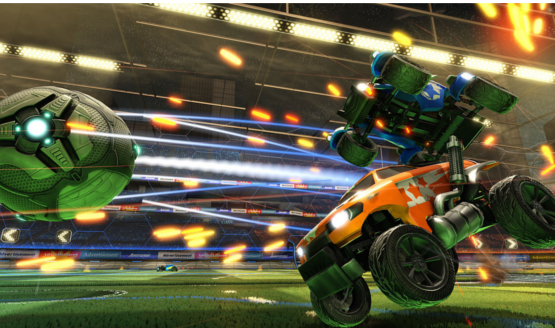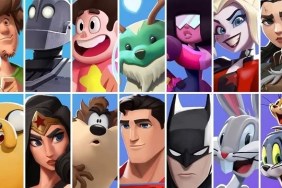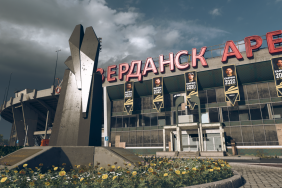Ahead of the big June Rocket League update, developer Psyonix Studios spoke with Forbes, revealing that they’ve grossed over $110 million so far, sold over five million copies across PlayStation 4, Xbox One, and PC (there’s over 15 million total players), sold over five million units of DLC on all three platforms, and April 2016 saw over five million active players.
“Our numbers are actually going up, not down, which is not very common for a game that’s ten months old,” Vice President Jeremy Dunham said. Thanks to PlayStation Plus, 42% of Rocket League’s active player base is on PS4, with Steam at 36%, and Xbox One at 22%, but Steam is the top-selling platform.
Dunham explained why so many people are still playing Rocket League:
One of the things you see in a lot of multiplayer games, is that over time usually the player base gets smaller and smaller as more and more DLC is added to the environment, because fewer and fewer people are buying those items. Since we only sell cosmetic items and cars we aren’t cutting anyone out of the equation, and that’s why our numbers are actually going up month after month after month our active player base has been increasing for five months in a row.
For the future of Rocket League, Psyonix says their content plans for this year are “community-focused” and the amount of features planned is “almost like watching an all new game again.”
Dunham adds that they still hope to add PS4 and Xbox One cross-play:
Our plans for cross-network play is to one day support the feature on every platform on which we’ve released. We launched on PC and PS4 as cross-network, and recently became the first-ever Xbox One game to support cross-network play with a Steam PC game, but the one thing our fans have really been waiting for is PlayStation 4 to Xbox one cross-network play, and it’s one that we hope to deliver one day.
Dunham knows cross-play will improve matchmaking by giving you a bigger player pool to select from, but getting Sony to agree is one big obstacle. “The biggest challenge is navigating the political landscape associated with competitors allowing their platforms to play against each other,” he says.
[Source: Forbes]








